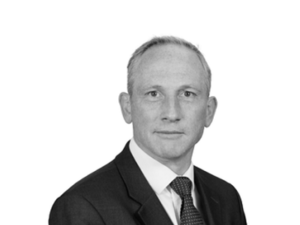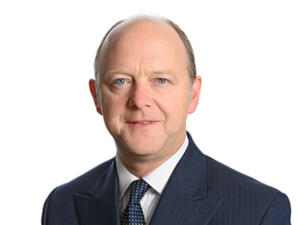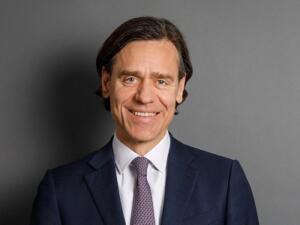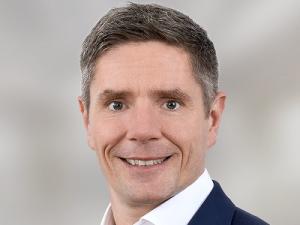GSK and Pfizer reach licensing deal over RSV vaccine
The global battle between GlaxoSmithKline and Pfizer over several patents for RSV vaccines has come to an end. The dispute was settled where it began, as both parties withdrew their claims and counterclaims at the District Court of Delaware. This also ends parallel proceedings in other jurisdictions, including the UPC.
9 April 2025 by Konstanze Richter
GlaxoSmithKline and Pfizer had been fighting over patents covering antigen technology used in RSV vaccines since 2023. RSV commonly causes lower respiratory tract infections in infants, young children, the elderly and immunocompromised people, leading to bronchiolitis and pneumonia.
According to a report quoted by IAM, Pfizer has taken a worldwide licence to GSK patents and agreed to pay undisclosed royalties to the patent owner. This ends all multi-jurisdictional patent disputes between the parties regarding RSV vaccines.
In addition to the US proceedings, further court cases were pending in the UK, Belgium, the Netherlands and at the UPC.
US to UPC
GlaxoSmithKline filed the US lawsuit against Pfizer in August 2023. Earlier that year, the US Food and Drug Administration had approved GSK’s RSV vaccine, sold under the brand name Arexvy. The British pharma originator claimed the US competitor’s rival product Abrysvo infringed several of its patents protecting the antigen technology used for Arexvy.
In summer 2024, GlaxoSmithKline then sued Pfizer at the UPC local division Düsseldorf for infringing its patent EP 4 183 412. The US pharma company answered with a counterclaim for revocation at the central division Milan.
GlaxoSmithKline filed a preliminary objection claiming that the Milan court had no jurisdiction to rule on the revocation. It based its objection on the fact that there was already a parallel case concerning EP 412 at the Düsseldorf local division. In December 2024, the central division Milan rejected the request, reasoning it was “not well founded”.
Rare Arrow declaration
In the UK, GlaxoSmithKline and Pfizer fought over the former’s EP 3 109 258 and EP 2 222 710. In autumn 2024, the UK High Court declared the British part of the two patents invalid. Judge James Mellor found the patents invalid for obviousness over all the prior art. Furthermore, he granted Pfizer an Arrow declaration, which is rare. The court also found that, even if the two patents were valid, Pfizer’s RSV vaccine product would not infringe (case ID: HP-2022-000016).
Furthermore, in 2024 the US Center for Disease Control and Prevention limited its age recommendation for RSV vaccines. The institute recommended them only for adults aged 75 years and over, as well as for those aged 60 to 74 and at risk of severe RSV.
This decision was a blow to GlaxoSmithKline, as well as its competitors Moderna and Pfizer, since it meant a narrowing of the market for RSV vaccines. As stated in a report by Biospace, analytics company Airfinity projected that these limitations could cut RSV annual revenues to just $1.7 billion by 2030 — a 64% reduction from a prior estimate of $4.6 billion.
This development combined with the decision of the UK court to nullify the British part of the European patents might have contributed to the decision of both adversaries to settle the dispute.
British-German teams
In the UK nullity case, plaintiff Pfizer relied on a team from mixed firm Marks & Clerk. London-based partner and litigator Mike Gilbert took the lead. Dan McGrath, Marcus Riby-Smith, Mari Brace, and Caitlin Ahern assisted in the case.
At the UPC the Marks & Clerk lawyers cannot act as lead counsel for Pfizer, even though Mike Gilbert was heavily involved in the case. The firm’s patent attorneys joined forces with German-based litigators from Clifford Chance. The team around practice head Claudia Milbradt and partner Tobias Hessel also included Annika Vollborn and Andrea Abele.
In the parallel Belgian proceedings a team from Hoyng Rokh Monegier was active for Pfizer.
- Mike Gilbert
- Paul Inman
- Oliver Jüngst
- Tobias Hessel
Before the UK High Court, a team from Gowling defended GSK’s patents. Lead partner Paul Inman worked on the case with London-based partner and head of patent litigation Huw Evans. They had assistance from associates Christopher Freeth, Felicity Wade-Palmer, and Ollie Carpenter.
In the UPC dispute over EP 412, a team from Bird & Bird around Düsseldorf-based partner Oliver Jüngst and patent attorney Daniela Kinkeldey represented GlaxoSmithKline. Counsel Andreas Obermeier as well as associates Anna Schadel and Lucas Brons assisted. They worked together with Evelina Marchesoni from the office in Milan.
The firm is one of the most active at the UPC, often working in a pan-European team. For example, offices in Germany and the Netherlands are cooperating for Celltrion in its dispute against Novartis. Bird & Bird lawyers from France, the Netherlands, Italy and the UK also joined forces for Dexcom in its dispute with Abbott till the parties settled at the end of 2024.
In the Belgian proceedings the Belgian-Dutch IP firm Stibbe represented GSK. The team around Brussels based partners Ignace Vernimme and Philippe Campolini included associates Louis Bidaine and Anya Murphy. They worked alongside Dutch law firm De Brauw Blackstone Westbroek, who was active for the pharma company in the proceedings in NL.



